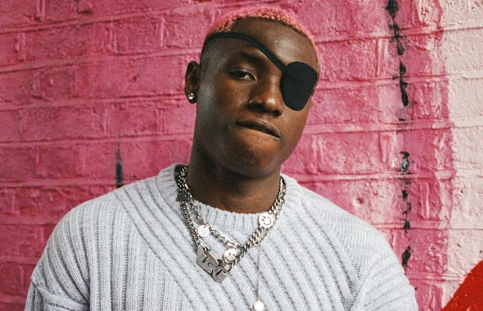
"When You Face an Obstacle You Can Jump Over It, Go Around It or Break Through It", Ruth Akagu on Self Determination
6th June, 2022 at 1:18PM
Ojochenemi Ruth Akagu is a Conservation Biologist with over 13 years of experience in biodiversity conservation and sustainable livelihood development. She currently serves as a Small Grants Manager with BirdLife International, Africa Division.She is passionate about working with women and young people and hopes her work can lead to the sustainable use of forest resources and improved livelihoods.She shares her story with Damaris Agweyu.Ruth, what has your journey taught you about life?That we all have a choice.People often say, "I didn't have a choice". I don't believe this is true. We always have the chance to determine what we want for ourselves.I make choices every day, and some are not necessarily the right ones, but I make them. And I've learned not to regret, but rather, learn from my choices. Because while some choices are not easy, you need to be true to yourself. And when you face an obstacle, you can jump over it, go around it or break through it.Can you tell me about an obstacle you have managed to power through?It goes back to the beginning of my career. I wanted to study pharmacy or biochemistry. But after doing my prequalification exams, the school gave me a biology education course instead. I was disappointed and felt like I had failed. But then my dad told me, "A bird in hand is worth two in the bush. Why not just get in the system and rewrite your exams when you are better prepared for the pharmacy course?" This made sense.In my second year of the biology education course, dad asked me if I was ready to write the exam for pharmacy. This meant I'd lose the one year I had done in biology education. I asked myself whether it was worth it. I had even come to love biology education. What's more, it was a double honour course where I was doing both education and biology, why not see it through? I did this, and in my 3rd year, I discovered the A.P Leventis Ornithological Research Institute (APLORI). They were running a master's degree program in Conservation Biology. I wanted in. But the program was only open to zoology, microbiology, and botany students- not biology education students.I spoke with a mentor who told me there was an opportunity to join APLORI, but I had to make a strong case for myself. I needed to take on more elective courses, all of which are 3 credit courses. My course supervisor, however, advised me against making any drastic changes at this critical period in my life. She was genuinely concerned that I might fail. I promised her that I would put my all into it because I was now looking beyond my undergrad. I wanted to get into the conservation biology course with APLORI. She resigned herself and told me, "Your life, your choice". I went with my choice.I filled the forms for APLORI and put my case forward. I talked about how I was practically doing all the courses the zoology students were doing, in addition to my education courses. I urged them to look at my transcript marks, not the name of the course on my certificate. They were convinced and admitted me for oral and written interviews; I scaled through and was accepted to do a master's in conservation biology, majoring in ornithology. The challenge paid off. I graduated with a distinction.I had to then join the National Youth Service Corps, a somewhat compulsory obligation to serve my country for a year. During this year, I was posted to a school where they didn't have a biology teacher; and the students had never passed the biology exams set by the West Africa Examination Council. After I joined, more than half of the students for that set, passed the biology exams.What did you do differently from what other teachers had been doing?For one, I have never liked exams. You're agitated, nervous, and you can't remember what you know. Many of the students resonated with this, so I created a different environment, one that made it all fun. The school didn't have funds for fancy outings, but we had a football field, and I created an ecosystem within this field. If they could relate what an ecosystem is to what they saw in the field, they would come at the subject from a point of understanding rather than memorisation of textbooks. That's what I believe I did differently. It was fun all the way, and my students looked forward to the classes.Learning can be fun or stressful, depending on several things. Sometimes it's the teacher who is the problem, but other times, the school management will not be on board with ideas even if the teacher has the will. Still, I believe a teacher needs to be creative in their approach.I enjoyed teaching because I learn more when I teach. Even today, the capacity-building aspect of our projects is what I love doing. I love developing materials and looking at making things easy and user friendly.Read full story on www.qazini.com→Qazini is a resource for anyone who is looking to improve their professional lives so they can raise their level of prosperity. We provide you with information that can help you on your journey to executing your dreams, we match employers with the right candidates for the job and job seekers with work that is the right fit for their skills.






